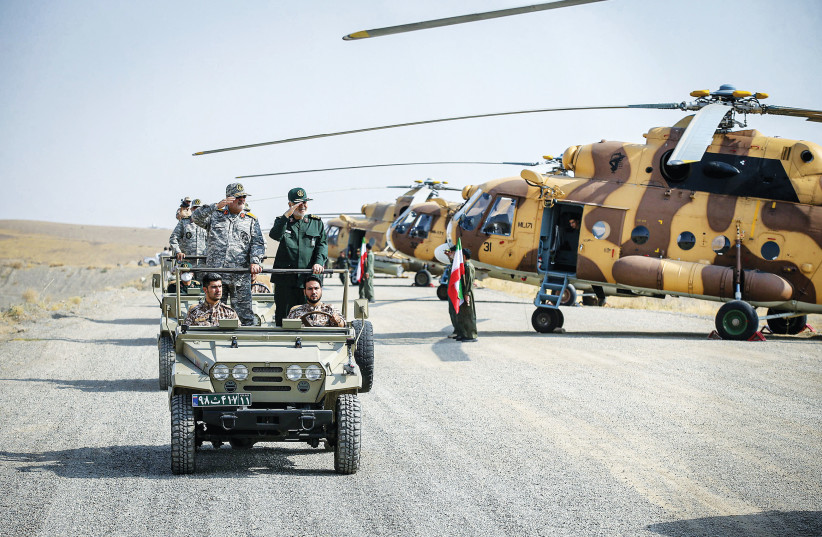Keeping Israel supplied with military equipment does not just help Israel in its war against Hamas, but also deters others from widening the conflict, including Syria, Lebanon, and Iranian proxy Hezbollah, according to US think tank.
For more stories from The Media Line go to themedialine.org
Israel’s military munitions must be kept well stocked in part to deter Iranian proxies in the region, experts from the Center for Strategic and International Studies think tank told a press conference in Washington focused on the Israel-Hamas war.
“The way Iran works is it goes into a geography; it identifies a promising arsonist; it then empowers, trains, and resources that arsonist to dominate all the other arsonists in its area, in that geography; and then it gives that arsonist very specific matches,” Norman Roule, a senior CSIS adviser who managed programs on the Middle East for the Central Intelligence Agency, told reporters.
The CSIS is a bipartisan foreign policy think tank based in Washington, DC. Its press conference was hosted by Andrew Schwartz, CSIS’s chief communications officer, and streamed online.
“Iran is also going to shape its proxies in the region with their behavior. Iraq is obviously going to be of concern to the United States as to how they deal with proxies in Iraq and in Syria and what that means for our counter-ISIS operations, embassy operations, and protection of our forces,” Roule told reporters.

The Islamic Revolutionary Guard Corps’ Quds Force manages Iranian proxies abroad, which are spread across the world and include Hamas and Islamic Jihad in the Gaza Strip, Hezbollah in Lebanon, Shi’ite militias in Iraq and Syria, and the Houthis in Yemen.
Houthis are a "wild card"
Roule said the Houthis were a “wild card” that could disrupt global economies by blocking commercial shipping in the Red Sea.
Since the Hamas attack on Israel on Oct. 7 and the outbreak of war, the US has already sent military assets and munitions to Israel and US President Joe Biden has promised additional aid.
"We’re surging additional military assistance, including ammunition and interceptors to replenish Iron Dome,” Biden said last Tuesday. “We’re going to make sure that Israel does not run out of these critical assets to defend its cities and its citizens.”
Emily Harding, deputy director and senior fellow of CSIS’s International Security Program, told reporters that Congress seemed to be “poised to provide Israel a lot of what they want and what they need” in the form of military assistance.
However, aid could be delayed because of the current standstill in the US House of Representatives, which does not have a speaker.
Dr. Seth Jones, director of CSIS’s International Security Program, told the press conference that Israel already has “a lot” but needs its weaponry for deterrent purposes.
“The more that Israel goes through in Gaza, [the more] it wants to have sufficient stockpiles for deterrence purposes, directed at the Syrians, and the Lebanese, and at Hezbollah operating there, as well as in the West Bank,” he said.
Jones said air assets, specifically precision-guided munitions, will most likely be needed to replenish what Israel uses in Gaza. Ammunition for pistols and rifles could be needed too.
The US has directed American munitions producers to expedite Israeli munitions orders.
Israel has also received kits from the US to retrofit ordinary bombs into precision-guided ones.
The experts suggested that even Hamas was surprised by the success of its attacks against Israel and said that anything is possible in the current war.
“We think we know the script: a ground invasion, high civilian casualties, weeks of fighting, and an eventual Israeli victory,” said Dr. Jon Alterman, director of the CSIS Middle East Program.
“I’m not confident it’s all going to go according to the script. Hamas departed from the script that Israel assigned it for years last Saturday, and last Saturday was surely only the first act that Hamas has planned.”
